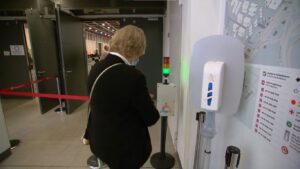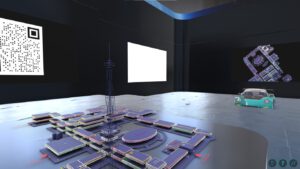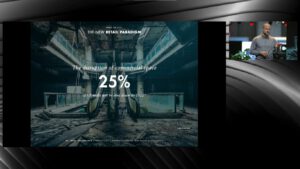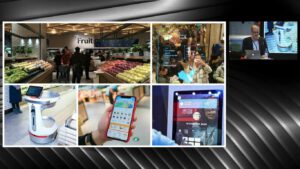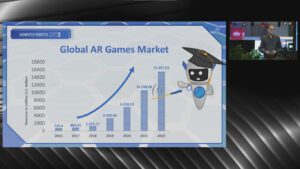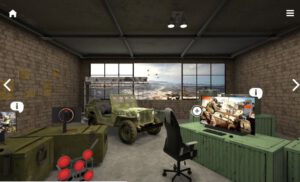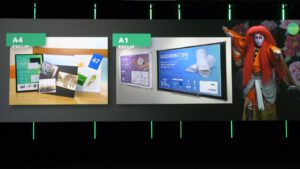In contrast to most large scale business and public events, this year’s IFA did actually offer a real-world event instead of going entirely online for pandemic related conditions. The IFA Special Edition took place on-site at the Berlin Messe fairground as well as in local electronic retail stores and on the internet as a digital broadcasting event. With this parallel presentation channelling the show became a testing Parcours for a cautious return to real-world showcases and hybrid promotion platforms.
The usually 26 halls encompassing consumer technology show now merely filled 4 halls, including press services, keynote stage, some demo booths and startup pitches. Each hall had a limited capacity of 750 visitors, measured by laser counters and signalled by traffic lights at the disinfectant equipped entry doors. Each hall and booth also had virtual representations in a fairground simulation for web browsers, offering contact information, product links and promotion videos.
Most keynote speakers appeared on video screens, LG’s chairman even in a holographic projection, so that you could as well follow the press conferences and product presentations on the internet streams. A popular German tabloid newspaper produced several daily online TV shows directly from the fair. A large electronic retail chain was supposed to present product innovations from the show on upcoming TV sets already set up in their local stores.
Retail reorganisation was the main topic of IFA’s special edition. The pandemic situation and the shifting of consumer markets to online distribution was in the focus here. But the keynotes of retail managers and business analysts clearly noted that these tendencies already existed before the pandemic acceleration. Comparisons between market developments in the US, China or Europe showcased how retail transforms on a global level. Tech startups and media agencies presented interesting concepts and communication strategies for hybrid channel solutions. While these perspectives were striving for innovation and change, their execution still has to improve: the show floor was scarce, the online world not very informative, and the product promotions were a no-show in local retail stores…
Although the digital distribution is on the upturn against stagnating or decaling traditional retail methods, some of the more advanced visions seemed a bit over-optimistic: for example, when AR toy makers assumed that even the youngest kids will communicate through apps with their teddy bears instead of just hugging their toy friend, or when LG promoted their new gaming screens in virtual game environments which only can be experienced with AR or VR glasses in this way – rendering the promoted screens unnecessary for these case scenarios. A hybrid LBE attraction combined VR glasses with real bumper cars while convincing hygienic service concepts are utterly important to revive this application field. However, the actual trends in the pandemic situation clearly point towards growing opportunities for digitization and wearables.
IFA is an ideal platform not only for discussing these ongoing turnarounds, but also for demonstrating valuable solutions and experimenting with them right on the spot. Hygienic solutions were also offered on the product show floor, for example with air cleaners and electronic disinfectants for shoes, bracelets, wall installations, respiratory masks or even living room drones. This will be relevant not only for home consumer electronics but also for public events and hardware retailers – even in digital domains of gaming and VR when it comes to hardware promotion and local based entertainment.
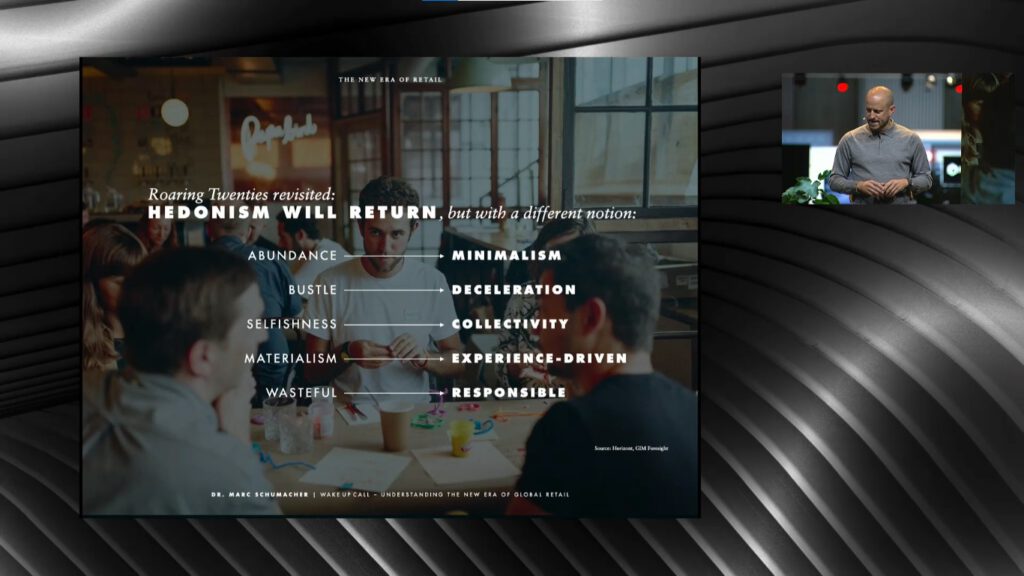
With the hybrid edition on hybrid retailing, IFA maintained the relevance of the whole show and confirmed Germany’s frontrunner position: after restarting sports events with special health management, after digitizing main events like Gamescom instead of cancelling them, after regulating overreaching technology ambitions (like Facebook’s temporary sales stop of Oculus VR headsets announced parallel to the show), and after reopening business trading in a hybrid format, Germany now is becoming a laboratory workshop for handling the ‘new normal’ under pandemic conditions – and for the foreseeable future.



